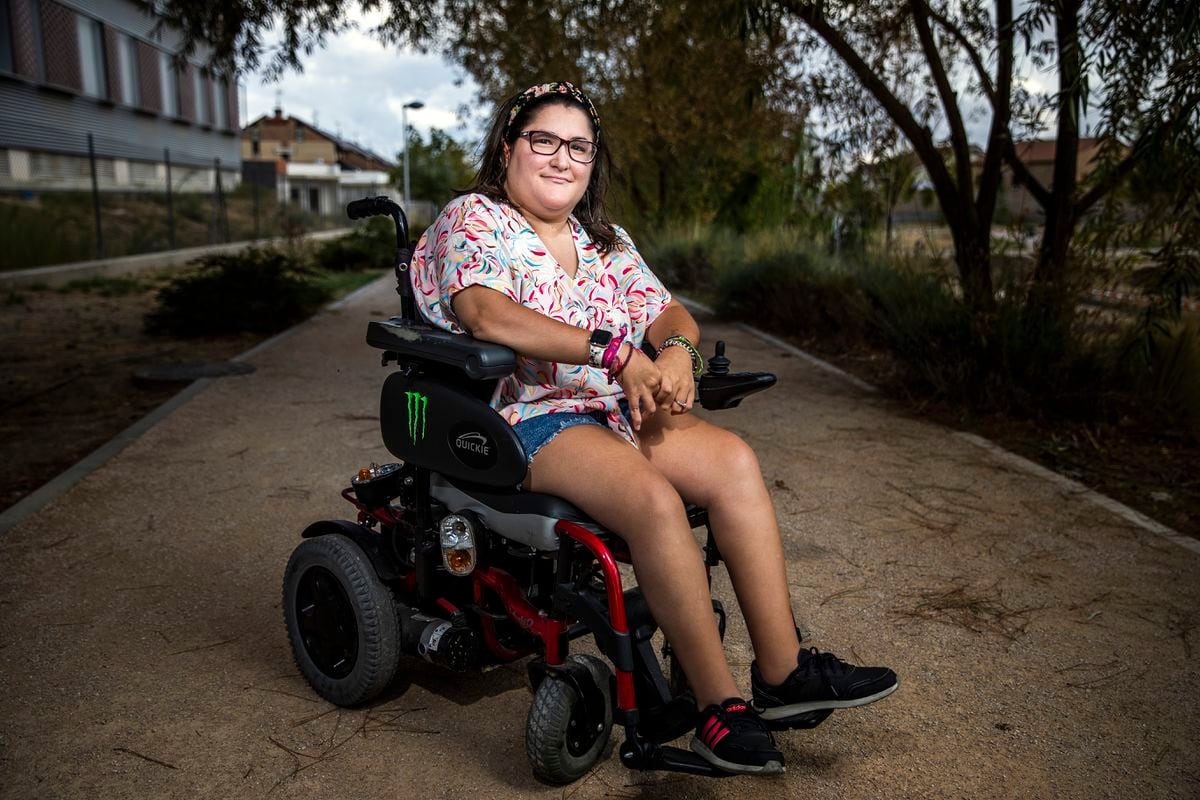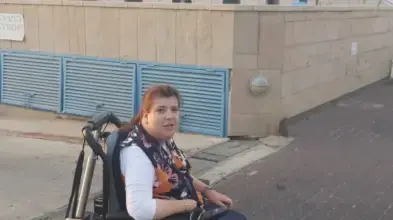For Pedro Consuegra (25 years old), word searches and numbers no longer hold any secrets.
After completing a digital talent program at Fundación Once, he has just kicked off his career.
“I have been hired as a programmer at Cabify.
It is as if another door was opened for me to grow, ”he says excitedly.
His physical disability, cystic fibrosis, has not prevented him from finding a job that allows him to give voice to one of his greatest passions: mathematics.
“Within my group of friends who have the same health problems as me, none of us would settle for just working at anything.
In the years in which we live, the priority is to enjoy each day, ”he adds.
In Spain, more than 145,000 young people with disabilities between the ages of 16 and 29 aspire to build a future on equal terms with the rest of the population.
Employment represents the fundamental lever to guarantee economic independence, normalize their lives and make their participation effective in all social spheres.
The pandemic undermined their expectations, however, overcoming the crisis has given them new horizons and they are now more aware than ever of their potential to contribute talent to a company, says Francisco Mesonero, general director of the Adecco Foundation.
"They no longer consider employment as a handout, but as an acquired right with which to contribute to society with their abilities," he adds.
According to a recent survey by the foundation, if last year almost half of those under 30 with disabilities were looking for a job of any kind, currently 86% want to work in a specific position.
Employment is the main concern for the future for four out of five respondents, followed by starting a family and finding a home.
Pedro Consuegra, a 25-year-old programmer, photographed in Pinto.
Santiago Burgos
The covid has not hindered the plans of Maika Hidalgo (24 years old), who after finishing her degree in Social Education at the UNED wishes to assist women who are victims of gender violence.
“I want to empower people regardless of their situation, since on a day-to-day basis since I was born I have always had to show extra strength to do anything,” she says.
Hidalgo suffers from infantile cerebral palsy that forces her to move around with an electric wheelchair.
An inconvenience for the development of her professional career.
“The shelters for battered women are often inaccessible due to architectural barriers.
I don't know how I will be able to adapt to the sector”, she reveals.
Young people with disabilities have to face an uphill job landscape.
Fundación Once demonstrates this: although they have an activity rate similar to the group of people with disabilities as a whole, 33.4%, they have to deal with a very low employment rate (17%) and an unsustainable level of unemployment (49%).
In addition, those who find a job barely reach a gross annual salary of 13,657 euros, up to almost 7,000 euros less than the average of people with disabilities of all ages (already 16% lower than that of employees without disabilities ).
Within the group, the path is not the same for everyone.
People with intellectual disabilities need greater political and social action to join the workforce.
“They face more prejudice because they have less visibility.
This difficulty lies in the paternalistic vision that we have had in this regard.
We have to adapt jobs to disability, not vice versa”, they warn from the Secretary of Social Policies of UGT.
Although the type of disability with the greatest presence is physical, the psychic and mental ones take on greater prominence among young people, says Sabina Lobato, director of training and employment at Fundación Once.
Andrea Gómez (21 years old) does not hide her learning difficulties.
When she finished ESO, the A la Par Foundation taught her to use the computer and guided her in her training.
For six months she has been working as an administrative assistant at Acerinox, where she is in charge of digitizing the documents.
“In the beginning, it was difficult for me to control my nerves and also to socialize, because it was my first job.
But then I started to get more fluent”, she points out.
Lights and shadows
Despite the difficulties, the labor market reflects that the inclusion of people with disabilities is succeeding.
In 2021, the number of collective contracts increased by 24% compared to the previous year, according to the State Public Employment Service (SEPE).
And it is precisely among those under 25 years of age where this increase has been most perceived (33%), although they account for less than 8% of the total contracting.
This year marks four decades since the approval of the General Law on the Rights of Persons with Disabilities and their Social Inclusion (the former LISMI), which requires companies with more than 50 workers to incorporate at least 2% of professionals with disability.
Although according to the unions there is no data to verify how many companies comply with the quota, the regulations have provided greater visibility of this group in the business environment.
“Many firms have understood that they are more competitive if they bet on talent without labels.
They have realized that the improvement of the work environment and the pride of belonging of the employees is based on knowing how to manage diversity”, indicates Mesonero.
Even so, several organizations that support people with disabilities make a call not to lower our guard in terms of awareness work in companies.
Of the total number of people hired in Spain in 2021, only 2% had a disability, when the group represents more than 6% of the working-age population (16 to 64 years old).
"These figures should make us reflect on the road that remains to be traveled so that companies are truly a reflection of society," says Lobato.
Eliminating the stigma is still an open battle.
"Often they only look at your degree of disability and they don't even call you to check the real limitations you have to carry out the work," notes Hidalgo, who when she applied for an internship was rejected for a couple of positions because the office was not accessible. .
She has a year left to finish her degree and she doesn't give up: “I'm not going to throw in the towel.
I don't stop fighting to work on what I like.
I need a job as soon as possible to be able to become independent, but I want to specialize in my sector”, she says.
Service sector
The majority of employees with disabilities work in the service sector (80%).
Within that, there are activities that have a very significant volume of contracting, such as building maintenance and gardening, office administration and social services without accommodation, which absorb 17% of the new contracts of the group in 2021, according to the SEPE.
“These are professions where people with disabilities historically have an important presence.
Many times employment opportunities are linked to social disability entities.
In addition, these people usually have a lower level of education, which makes it difficult for them to join,” says Josefa Torres Martínez, secretary of the Cermi Labor Inclusion Commission.
In fact, 37% of the Spanish population has higher education,
The strong outsourcing of the labor market, even more pronounced among people with disabilities, should not close the door to a possible change in trend.
“It is true that depending on the type of disability there may be some limitations in the development of certain professions.
But what difference does it make if a
software
worker is in a wheelchair?” asks Mónica Pérez, Director of Communication and Studies at InfoJobs.
The young Malka Hidalgo agrees with this: “It is inconceivable that we arrive at a place and they tell us that they are not prepared for us.
Much more presence of our group is needed in all areas of life”.
Follow Business information on Twitter, Facebook or in our weekly newsletter





/cloudfront-eu-central-1.images.arcpublishing.com/prisa/STFOFHMRZ5BFZNSAFIXAIPB24I.jpg)


